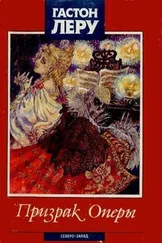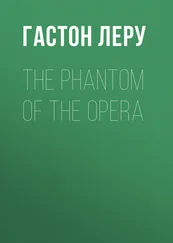Гастон Леру - The Double Life
Здесь есть возможность читать онлайн «Гастон Леру - The Double Life» — ознакомительный отрывок электронной книги совершенно бесплатно, а после прочтения отрывка купить полную версию. В некоторых случаях можно слушать аудио, скачать через торрент в формате fb2 и присутствует краткое содержание. Жанр: literature_20, Классический детектив, foreign_detective, на английском языке. Описание произведения, (предисловие) а так же отзывы посетителей доступны на портале библиотеки ЛибКат.
- Название:The Double Life
- Автор:
- Жанр:
- Год:неизвестен
- ISBN:нет данных
- Рейтинг книги:4 / 5. Голосов: 1
-
Избранное:Добавить в избранное
- Отзывы:
-
Ваша оценка:
- 80
- 1
- 2
- 3
- 4
- 5
The Double Life: краткое содержание, описание и аннотация
Предлагаем к чтению аннотацию, описание, краткое содержание или предисловие (зависит от того, что написал сам автор книги «The Double Life»). Если вы не нашли необходимую информацию о книге — напишите в комментариях, мы постараемся отыскать её.
The Double Life — читать онлайн ознакомительный отрывок
Ниже представлен текст книги, разбитый по страницам. Система сохранения места последней прочитанной страницы, позволяет с удобством читать онлайн бесплатно книгу «The Double Life», без необходимости каждый раз заново искать на чём Вы остановились. Поставьте закладку, и сможете в любой момент перейти на страницу, на которой закончили чтение.
Интервал:
Закладка:
How could it be that Théophraste Longuet could have been anything else but an honest being before his birth, during his life, and after his death?
Marceline agreed with him, and Adolphe fearing that he had gone too far made apologies.
CHAPTER VII
Théophraste and His Black Plume
FOR the next few days M. Lecamus and M.
Longuet occupied themselves with evidence of this phenomenon, and were often seen together, conversing mysteriously, in the bar-rooms and about town, about the treason of the first of April. They left the Villa Flots d’Azure to return to Paris, with the intention of searching the libraries. They worked diligently for several days without any result, until M. Longuet began to lose spirit. M. Lecamus was more patient.
One evening as they were walking towards the Rond Point, in the Champs Elysees, he turned around and said, “What can we do to find the approximate place where the treasures are buried if you have not your black plume?” Théophraste and Marceline could not understand this, and asked for an explanation. He commented:
“You have heard of the water witches who could discover water by the aid of a wand, by a phenomenon which nobody has as yet been able to explain. These witches traced water across the various beds of earth, and by pointing the little rods, indicated where it was necessary to dig in order to make a well. I do not despair of showing you, Théophraste, where your treasures are buried. I will conduct you over the ground shown in the document, and tell you where it is that you must dig to find your treasure.”
“Yes,” interrupted Théophraste, “but this does not explain to us what you mean by ‘the black plume.’”
“I am coming to that now. I am obliged to speak of Darwin. You will understand directly. You know that Darwin devoted himself to several celebrated experiments, of which the best known is that with pigeons.
“Desirous of accounting for the phenomenon of heredity and the value that he attached to it, he closely studied the breeding of pigeons, which is sufficiently rapid to have enabled him to draw conclusions upon an appreciable number of generations. At the end of the tenth generation he found the same type of pigeon, with the same defects, the same qualities, the same form, the same outline, and the same black plume there in the same place where the first pigeon had a black feather. Very well! With that I will prove to you that it is the same with souls as it is with bodies.
“At the end of the tenth generation, we find the same soul, as far as it exists, with the same defects, the same virtues, and, as it were, with the original black feather. While giving you this illustration, it is necessary to distinguish between the soul which reappears thus hereditarily, and that which comes back by reincarnation. Believing that it is the result of a unique combination which nothing can oppose, and, since it dwells in a case called a body, is hereditary in the same degree as that body, an hereditary soul which comes from an ancestor always has his black feather, while a soul which comes back by reincarnation finds itself in a body which is in no way prepared to receive it. The aggregate materials of this body are original, and decaying, momentarily impose a silence on that soul.
“But a time comes when this soul becomes the strongest, when it speaks, when it shows itself entirely, just as the black feather does.
“Now, Théophraste, for several generations you were the honest gardeners in the Ferte-sous-Jonarre. But when that soul speaks in you, you are no longer yourself. Théophraste Longuet has disappeared. It is the Other who is there. It is the Other who has the gesture, the manner, the action, the black feather. It is the other who recalls the mystery of the treasure, it is the Other who remembers the Other.”
“Oh! This is admirable!” exclaimed Théophraste, who was so deeply moved that he could hardly refrain from weeping with excitement. “And now I understand what you mean by my black feather. My black feather returns to me when I am the Other.”
“And he will help you then, my friend,” declared Adolphe with conviction. “But until we have released the unknown who is hidden in Théophraste Longuet, and until he lives with sufficient strength, audacity, and liberty, until he is resuscitated, in a word, until he appears to us with his ‘black feather,’ we will confine ourselves to the study of that interesting document which you brought from the Conciergerie. Let us make a plan for penetrating the mystery. We will find out exactly where the treasures are buried, but we must wait for the spirit who dwells in you to say to us, ‘It is there.’”
“My friend,” said Marceline, overflowing with admiration, “you talk like a book, and I wonder that you have not more often tried to teach us these things, for we are so ignorant. You must not leave a stone unturned to find the treasure. I do not fear the destruction of the earth on account of the object of our search.”
Adolphe turned around to reprove Marceline for her flippancy, but at this moment M. Milfroid, the Commissioner of Police, approached, and Adolphe rose to greet his friend.
Adolphe introduced M. Milfroid to M. and Mme. Longuet. He was a man of about forty years of age, elegantly dressed, immaculate gloves, a silvery ringlet of hair on the white forehead. He advanced, smiling and bowing.
“We have often heard our friend M. Adolphe speak of you,” said Marceline. “Your fame has gone before you.”
“Oh, madame, I have known you for a long time. Every time I meet M. Lecamus he speaks to me of his friends of the Rue Gerauds, and in such terms that it has been my greatest desire to have the happiness of being presented to you.”
Marceline was conquered by such gallant manners. “I hear that you play the violin very well,” she said.
“I am equally interested in philosophy,” said M. Milfroid. “An interest which I owe to M. Adolphe, who is continually in dispute with me over the immortality of the soul, and other psychic matters. He has really made a convert of me.”
“Monsieur,” said Théophraste, who had not yet taken part in the conversation, “Adolphe and I like to converse about serious matters, also. We were just speaking of the relations between the soul and the body, and the different ways that the soul has of behaving with the body.”
“Ah!” said M. Milfroid, who desired to shine before Marceline, “are you able to distinguish between matter and mind, or the material and the spiritual? Matter and mind are the same thing in the eyes of science. That is to say, they constitute alike one unit, one force, produce at one time the phenomenon of cause and effect, tending to one end, the progressive steps of existence. You are the only ones, gentlemen, to still make that old distinction between matter and mind.”
After a while they rose and returned through the Place de la Concorde. At the entrance to the Rue Royale, there was a crowd of people, shouting and gesticulating. Théophraste, an old Parisian, wanted to know what was taking place, and flung himself into the crowd.
“Look out for pickpockets,” Marceline called to him.
“Oh, madame,” said Monsieur Milfroid, the Commissioner of Police, “there are no pickpockets when I am about.”
“It is true. We should be in no danger when you are here.”
“I do not know about that,” said Adolphe, looking about them. “My friend here appears more dangerous to me than all the pickpockets on earth.” At this they all laughed.
Théophraste made them wait ten minutes before he appeared, and then he announced that it was a coachman who had gotten his wheels locked with an automobile, and could not separate them.
Marceline felt annoyed at having been kept waiting so long on such a slight pretext. However, her thoughts were diverted in doing the honors of a hostess, and she invited M. Milfroid to dinner.
Читать дальшеИнтервал:
Закладка:
Похожие книги на «The Double Life»
Представляем Вашему вниманию похожие книги на «The Double Life» списком для выбора. Мы отобрали схожую по названию и смыслу литературу в надежде предоставить читателям больше вариантов отыскать новые, интересные, ещё непрочитанные произведения.
Обсуждение, отзывы о книге «The Double Life» и просто собственные мнения читателей. Оставьте ваши комментарии, напишите, что Вы думаете о произведении, его смысле или главных героях. Укажите что конкретно понравилось, а что нет, и почему Вы так считаете.
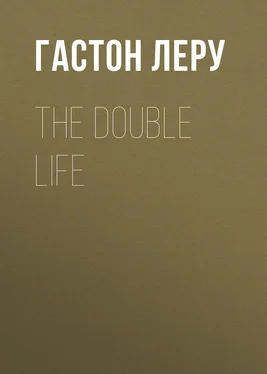
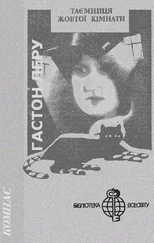


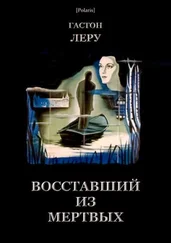
![Гастон Леру - Невеста Солнца [Роман]](/books/415626/gaston-leru-nevesta-solnca-roman-thumb.webp)
